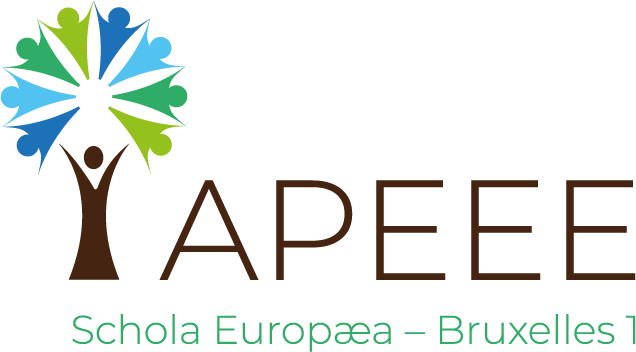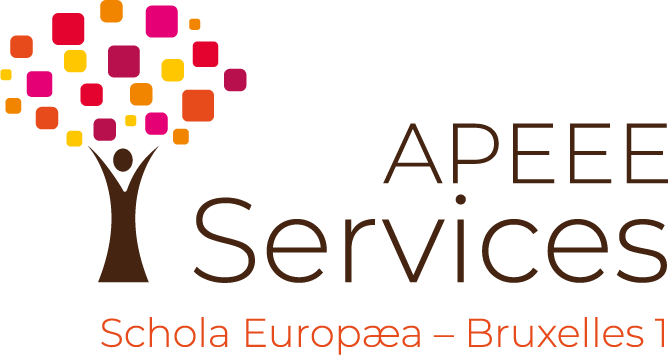Projects, Trips and Project Weeks
Primary Interlocutor: PedGroup
Learning outside a traditional classroom environment contributes significantly to the development of students’ key competences (Key Competences for Lifelong Learning in the European Schools), improves their opportunities and chances to be accepted when applying for places at universities and builds and strengthens the EEB1 community as the activities connect and reinforce the bonds between students, teachers, school management, staff and parents.
EEB1 has historically offered a diverse range of activities, including:
- European School Programmes involving all European Schools (such as Eurosport, the Festival of Arts and Music in the European Schools (FAMES), the European Schools Science Symposium (ESSS) and the Model European Council (MEC)).
- School or Brussels-based European School Programmes like the mandatory EEB1 level-wide programmes (such as the EEB1 S2 Eurospace Trip, S4 Bio Camp, or the S6-S7 day-trips to Ypres and other historical locations), optional EEB1 events open for participation at several levels (such as the week-long “Orangerie de la Poesie”) or programmes organised by one or several European Schools (such as Mini-Eurosport or PhiloDay).
- S6 Trips, generally one-week cultural trips involving the whole level.
- Work Experience, traditionally an optional one- or two-week programme for S5 or S6 students, though required for those not taking the S6 Trips. The school has recently made these mandatory for S5 students.
- Subject Projects/Trips, promoted generally by single or small groups of teachers, involving one or a few classes at a time, and having a pedagogical aim.
- Competitions, which are run within Member States or at the European Union level in various subjects, Maths, Physics, Chemistry, Languages, or other subjects, in which EEB1 students can take part if teachers are willing to encourage and guide them and organise logistics. There are various possibilities on offer in the “outside world” that EEB1 could pick up on.
- Clubs, activities which gather students around a common interest throughout the school year (such as the Rainbow Club or the Coding Club). This also includes the Choir, which brings together around 50 students who perform publicly at various occasions.
Césame (APEEE Services) provides various activities for students against a fee. Nevertheless, they are managing some initiatives that go beyond individual students' interests and promote the EEB1 community, such as ESB Octopus (the swimming team of the four European Schools of Brussels), the EEB1 School Orchestra (the Symphonic Orchestra of EEB1 and the Chamber Orchestra), other musical groups and ensembles that regularly perform in school events, and even the EEB1 Chess Teams.
The APEEE has also supported several one-off or recurring projects through its semi-annual call for project proposals. See: Currently Funded Projects
An initial mapping of activities was carried out by the APEEE PedGroup’s Working Group on Secondary Projects & Trips between February and May 2021 in consultation with various section representatives and with fruitful input provided through a dozen or so teacher interviews. Based on the evidence gathered, the Working Group identified the following issues to be further explored.
Preliminary Results
- Virtually all types of the EEB1 initiatives suffer from a few common challenges, obviously to varying degrees: ensuring continuity of initiatives and creating favourable conditions to start new ones, teacher and student engagement, timetabling of activities, management and implementation of initiatives (i.e. the organisational aspects) and funding.
- Preliminary consultations with section parent representatives and especially teachers indicates that there is insufficient overview and awareness of the activities going on at EEB1. This could be improved with inter alia an online school calendar of events and activities, an IT tool to allow teachers to register activities, or channels/forum to communicate and disseminate information on the organisation and results of activities (e.g. SharePoint, APEEE NewsFlash, school website, educational advisor network).
- It was also found that there is insufficient overview and awareness of the activities going on outside of EEB1. There is a category of initiatives in which EEB1 does not take part, including those initiated by the EU institutions (e.g. Juvenes Translatores, European Statistics Competition or eTwinning). Stronger links with the EU institutions and DG EAC in particular could help with this as well as closer ties with other European Schools.
- By working in cooperation with the Career Guidance and Educational Advisor teams, the school could build student awareness and strengthen the case about the value of projects to their education and later life in order to encourage their participation not only in trips but also in educational projects that take place on campus.
- Teachers’ engagement is crucial for the success of project and trips. Hence it is of paramount importance that they are provided with guidance and support in the key steps of implementing an initiative and in the management of money or logistics, so that their voluntary work can be more fruitful and better recognised.
- The Project Weeks deserve a proper assessment, to check whether the current model (all-in-all-out) is fit-for-purpose and still caters for the diversity of activities and offers driven by teachers’ interest. In fact, the school's all-in-all-out approach for the 2019-2020 envisaged one full Project Week, down from three in the previous years. Though teachers were encouraged to present projects for these weeks, the March Project Week in the last school year in particular was to be centrally organised to ensure full coverage. An all-in-all-out Project Week would also not “capture” many of the current projects and initiatives due to their unsuitable timing or unavailability of venues. A further Project Week reflection might also include consideration of the end of the school year and BAC oral examination period as a possible moment for a Project Week. As an example, see the European School of Alicante's June Project Week 2021.
APEEE Position
Parents (and teachers) agree that learning outside the classroom to complement the mandatory school curriculum has important value added for our children’s education through which students acquire new knowledge and experience.
The APEEE supports the establishment of an ad-hoc School Working Group that would include representatives of all EEB1 stakeholders. This group should help define priorities, provide support to grassroots initiatives and exploit external opportunities. It could also help to ensure that students across sections and levels are able to benefit from a wide array of activities and programmes. Finally, it could help to rethink the purpose, format and timing of the Project Week.
As a timeline, we believe that the Working Group should come up with a first set of concrete proposals by September 2021 to be presented and approved at the first CE meeting of the school year 2021-2022, so that they can be implemented during the same school year. After almost two school years of disruption due to the COVID-19 crisis, the APEEE considers it imperative that the school nurture and expand existing activities while also fostering new initiatives. In this way, we can ensure that the potential for learning outside the classroom is fully exploited by and in the EEB1 Community.
Supporting Documents
![]() APEEE: Letter to Secondary Direction on Proposed Changes to Project Weeks (25 Nov 2019)
APEEE: Letter to Secondary Direction on Proposed Changes to Project Weeks (25 Nov 2019)
![]() EEBI: School Trips Planned for 2019-2020 (February 2020)
EEBI: School Trips Planned for 2019-2020 (February 2020)
![]() European School of Alicante: Project Week Magazine (June 2021)
European School of Alicante: Project Week Magazine (June 2021)
![]() APEEE: School Trips and Projects Analysis for Secondary CE (01 July 2021)
APEEE: School Trips and Projects Analysis for Secondary CE (01 July 2021)
See also: APEEE PedGroup
Last update: 01/07/2021



